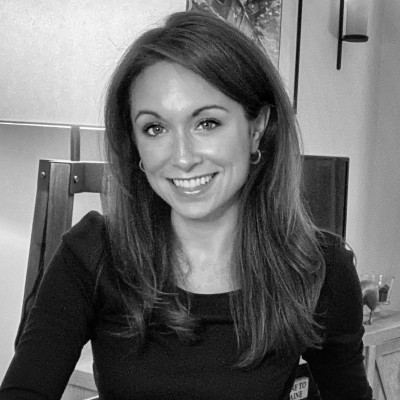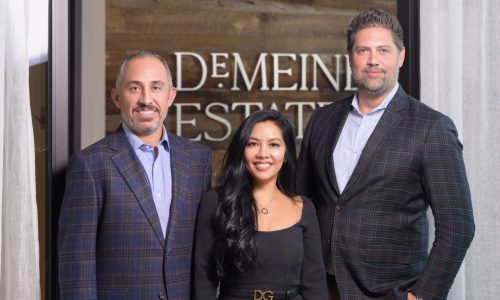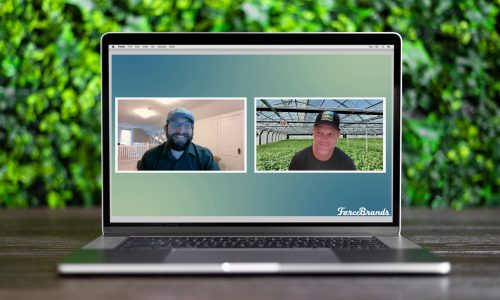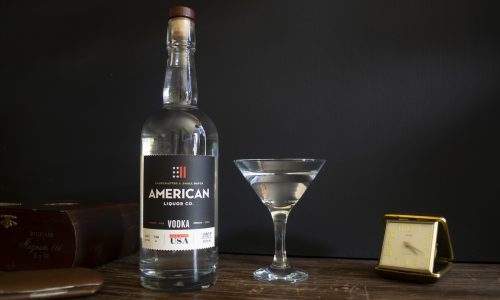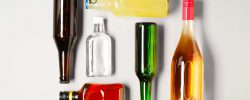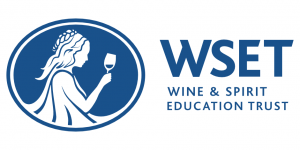 ForceBrands is proud to partner with the Wine & Spirit Education Trust which provides globally recognized education and qualifications in wines, spirits, and sake, for professionals and enthusiasts.
ForceBrands is proud to partner with the Wine & Spirit Education Trust which provides globally recognized education and qualifications in wines, spirits, and sake, for professionals and enthusiasts.
Maggie Campbell DipWSET is Head Distiller and Vice President of Privateer Rum and is also the founder of the Denver Brewer’s League. She serves on the Board of the Directors of the American Craft Spirit Association and co-chairs their Education Committee. She is also the North American representative on the WSET International Alumni Advisory Board, all of which she manages while studying for her Master of Wine.
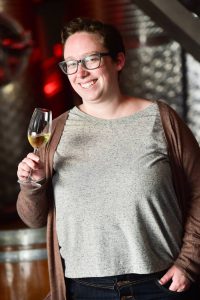 Q: How did you start out in the world of distilling?
Q: How did you start out in the world of distilling?
A: I studied wine for years but working in a boutique retailer with a great selection of hand-crafted spirits gave me the opportunity to visit and befriend my local distillers. I saw huge potential in an exploding market and loved the upward mobility that contrasted with the crowded wine world. I built on my existing wine knowledge with spirits and learned how the two go hand-in-hand. I learned the concrete steps of distilling through my WSET Diploma and a certificate from the Siebel Institute in Craft Distillation and Technologies. I traveled all over the United States and Europe for more than a decade gathering the practical skills of distilling before becoming Head Distiller at Privateer.
Q: You’ve been named one of the top ten female distillers and blenders of 2016 by The Spirits Business in an industry that is predominantly male-dominated. How do you see the role of women changing in the distilling industry?
A: Women have always played an important role in distilling but often lack the visibility they deserve. From the women alchemists of North Africa who held the secrets of distilling and kept it alive through cultural and religious change and taught others traveling on trade routes, to the wives of Scotch distillers running the operations while their husbands were away on business, to today’s Master Distillers, there have always been women at the helm. We often have a picture in our mind (and here in the U.S. it is definitely connected to the cartoon image of John Wayne on the frontier, breaking free from the corner office) that reinforces a narrative that excludes women, and women of color.
One of the things I find most exciting about rum, and other molasses and sugar-based spirits, is that it is made in Asia, Oceania, Africa, the Caribbean, South America, North America, Israel, and even Europe.
It is a truly global community. Some of the top rum companies are headed by women and people of color. Appleton, Zacapa, El Dorado, Mount Gay, Brugal all have women of color at the helm of operations. No other spirits category can claim that level of diversity and inclusion. Talent is evenly distributed and in rum, it is evenly represented and celebrated.
Q: What are the main priorities when setting up a distillery?
A: Most people aspiring to distill get hung up on the actual distilling. While obviously important, it is just as important to understand the local laws, distribution in your target market, drinks tourism, employee management, accounting, and how the consumer interacts with your product. Making great product does not inherently sell that product, and with the capital investment of distilling, you really need to succeed as quickly as possible at sales.
I absolutely think professional training in distilling from multiple sources is a must. I think everyone who aspires to distill should take at least a year to travel on weekends or go on holiday to visit other distillers and take in their experience, especially in established distilling cultures. In the U.S., distilling has only been resurrected recently and I see a lot of people teaching each other poor practices or reinventing the wheel. You will see as much of what to do as what not to do in your travels. If you are too impatient to groom your skills and observe the community for a year, you should reconsider distilling. We work on a scale of decades and generations, not weeks or months.
Q: Across the world, do you think education in spirits is taken as seriously as education in wine?
A: No, not yet. Big brands control most of the education provided for bartenders and buyers. You cannot rely on a brand to give you accurate information; their goal is simply inherently connected with their bottom line. I am very passionate about seeing the WSET spirits program spread because I think it is one of the few independent, high quality, and comprehensive spirits education programs that does not have a brand agenda.
Spirits are every bit as sophisticated as wine, and truly shares so much in common with it. From Mezcal agave microclimates, soil types for cane, varietals of corn, vintages for cognac grapes and eau de vie, fermentation temps, yeast selection, climate of elevage, effects of aging, cellar conditions, oak characteristics, tannin polymerization, cask selection and blending, so very much of distilling knowledge mirrors my already built in wine knowledge. It is very exciting to see Jancis Robinson add ‘Drinks not Wine’ to her website columns and I still hope for my silly dream I had when I was 22, to write a spirits column for Decanter magazine to come true.
Q: You presented the TED talk ‘Living a life without compromise’ a few years ago (see below to watch), what drives you?
A: Distilling is exhausting physical work and taxing mental work (a mountain of paperwork, label approvals, product launches, taxes, employee reviews, etc.). You have to connect to it in a meaningful way if you are ever going to get your energy replenished by the work. For me, that means seeing past the hard technical training I have, to the traditions, fables, and alchemy of distilling. There is a great deal of distilling knowledge we don’t have the science for yet. Filling in those spaces with more romantic ideas, such as elevage, helps feed your heart and mind when reserves are low — you feel connected to history and nature. It is a daily practice and cultivation that creates success and we as distillers need to tap into that. In time, science often goes on to prove many of these things as true! Think of how recently we didn’t have the science to explain fermentation.
When it comes to our drive it all flows from one question: what is best practice? We want to make the top quality decisions to make the best rum possible. It feeds all our conversations, all of our company policy, all of our decisions and employee training. Every member of the crew feels connected and like what we are doing is very special and they have a personal role as a guardian of the rum. It leads to high satisfaction, high quality work, and high quality rum.
If you’d like to know more about how WSET qualifications can help your business or are interested in becoming a WSET course provider in U.S., please contact Dave at drudman@wsetglobal.com.
